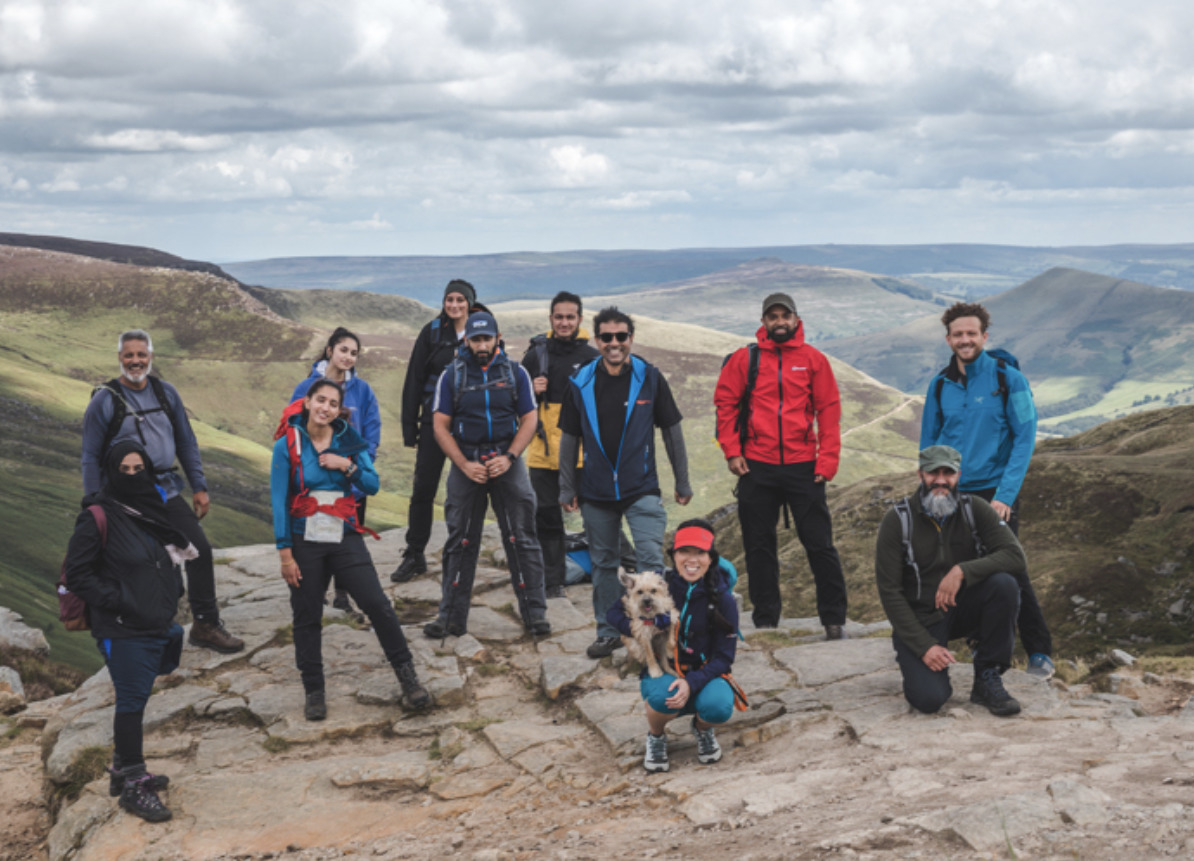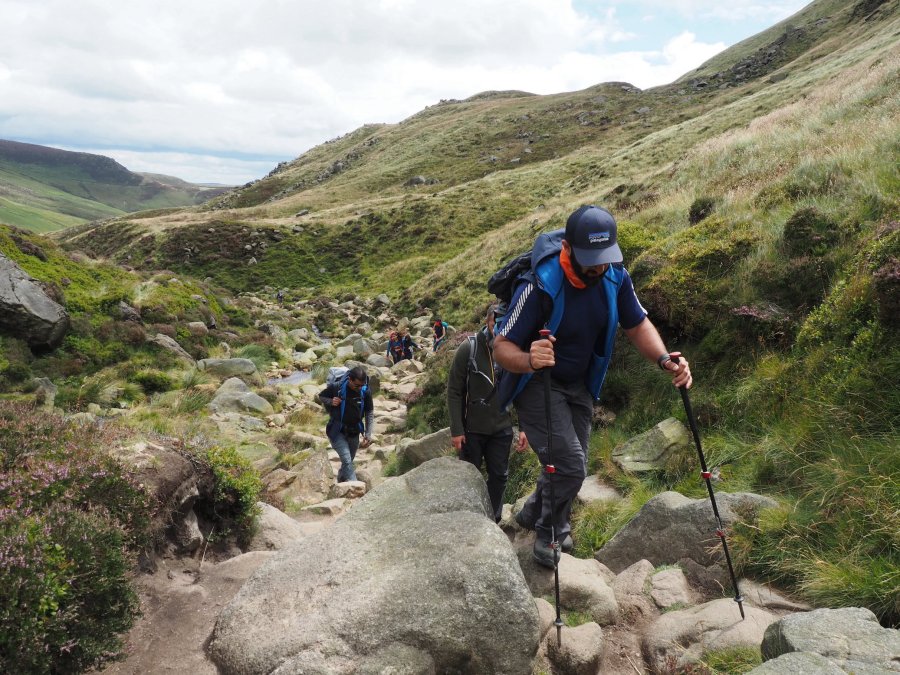Commemorations of the 90th anniversary of the Kinder trespass this weekend will include an event designed to highlight the under-representation of people from black and minority ethnic backgrounds in the countryside.
Main image: walkers climbing Kinder Scout. Photo: Carey Davies
The event is one of two commemorations which will be held in the Peak District this weekend to mark the anniversary of one of the defining historical events in the campaign for open access to Britain’s uplands, the 1932 Kinder Scout Mass Trespass.
Kinder in Colour
The ‘Kinder in Colour’ event in Edale on Sunday April 24 will aims “to lead black people and people of colour to walk, dance, sing and take up space on Kinder Scout and highlight that this green and pleasant land belongs to us too.”
A statement from the event organisers said: “Despite making up 13% of the UK population, black people and people of colour (BPOC) make up only 1% of visitors to national parks. Just 39% of people from BPOC backgrounds live within a five-minute walk to green spaces compared to 58% of white people (Thomas Reuters Foundation).

A MOSAIC-led walk on Kinder Scout in 2020. Photo: Rachel Sarah
It added: “The Journalist Jay Rayner created a race map which showed people from BPOC communities are much more likely to be the victim of racist assault in rural areas than in cities (CPRE). BPOC are as deserving to feel safe and comfortable in forests, moors and mountains as white people.”
A ceremony will be held in Edale Village Recreational Park before an afternoon hike up Kinder Scout itself, followed by an Iftar evening meal and music at 8.20pm.
Hayfield celebration
The day before, on Saturday April 23, a celebration at the Royal Hotel in Hayfield will see talks from Caroline Lucas, Green Party MP, as well as representatives from the Ramblers, the Open Spaces Society and the National Trust.
Stuart Maconie, broadcaster and president pf the Ramblers, has been invited to speak, as has Kate Ashbrook of the Open Spaces Society and the Ramblers. Author Keith Warrender will also be launching his new book about the trespass.
A statement from the event organisers said: “At a time when we realise how limited and fragile our right to roam is, we need to mark the 90th anniversary of the 1932 trespass as a rallying point for all our current and future campaigns – we still have a long way to go and the struggle very much continues.”
No organised events will be held in Hayfield on Sunday April 24, but exhibitions and stalls will be open and the organisers say they are expecting large numbers of people to come and walk on Kinder to mark the anniversary. They are encouraging people to arrive by public transport.
A turning point
Organised by the Communist-led British Workers Sport Federation, the 1932 mass trespass saw 400 walkers climb Kinder Scout in protest at restricted access to the Peak District’s highest mountain, as well as the wider uplands. Six of the trespassers were arrested and five were imprisoned.

The trespassers setting out from Hayfield in 1932
The event has come to be seen as a crucial turning point in the access campaign in Britain.
The Countryside and Rights of Way (CROW) act of 2000 granted broad open access to certain open and uncultivated land in England and Wales, while the more extensive Land Reform Act was enacted by the Scottish Parliament in 2003, and formalised the Scottish tradition of free access to open countryside.
In recent years, campaigns like Right to Roam have sought to extend the CROW act, while a host of campaigns and groups have brought attention to the inequalities in the demographics of people who access the outdoors, including ‘Kinder in Colour’ event supporters Black Girls Hike and Muslim Hikers.
Earlier this week, the government quashed a review into expanding access to nature in England, being led by Lord Agnew, to angry reactions from campaigners and some MPs.
The review was designed to search out a “quantum shift in how our society supports people to access and engage with the outdoors”. Its closure was justified by a government minister, who said: “We have to recognise the countryside is not just a place of leisure, but it is also a place of business and food production.”







